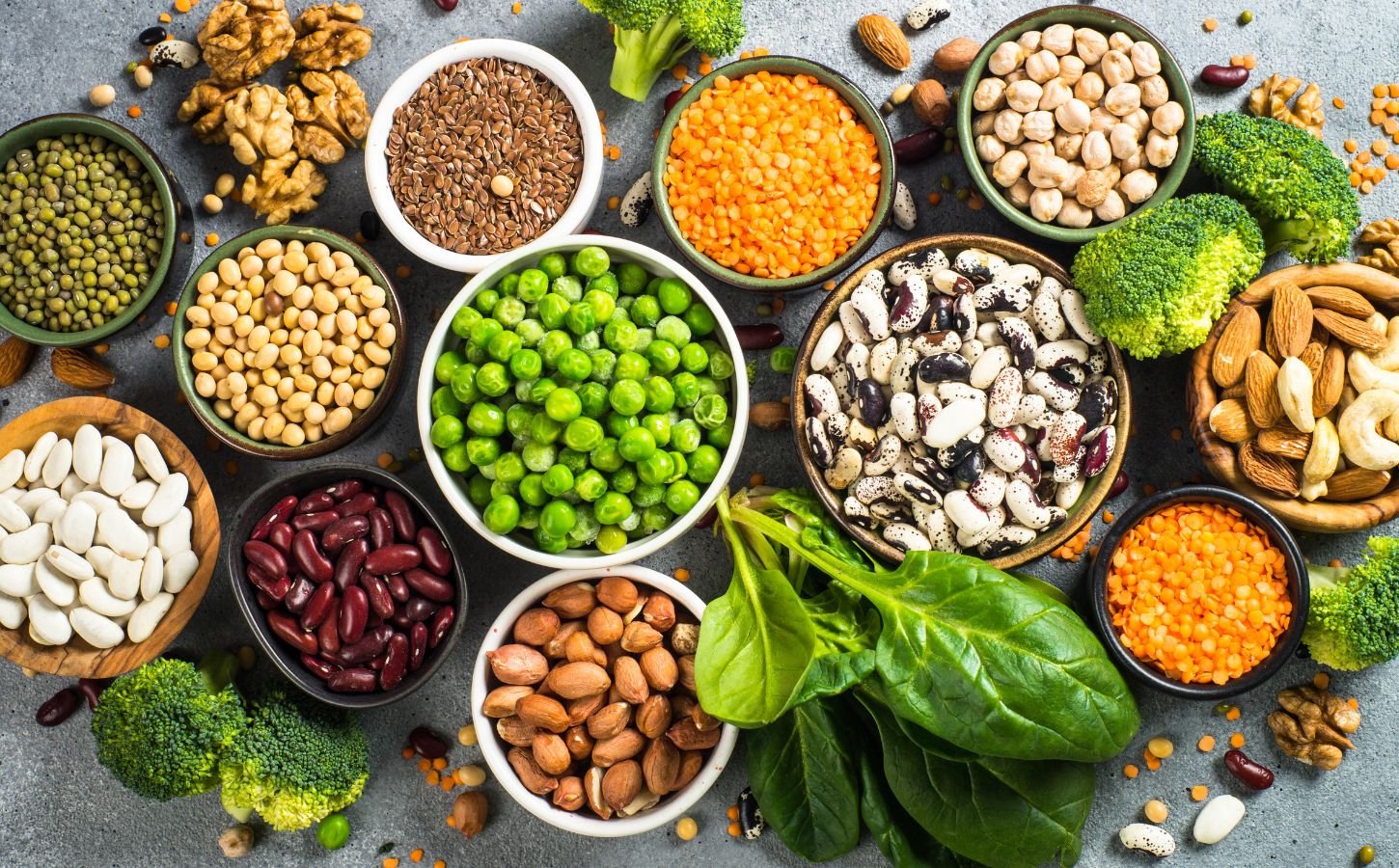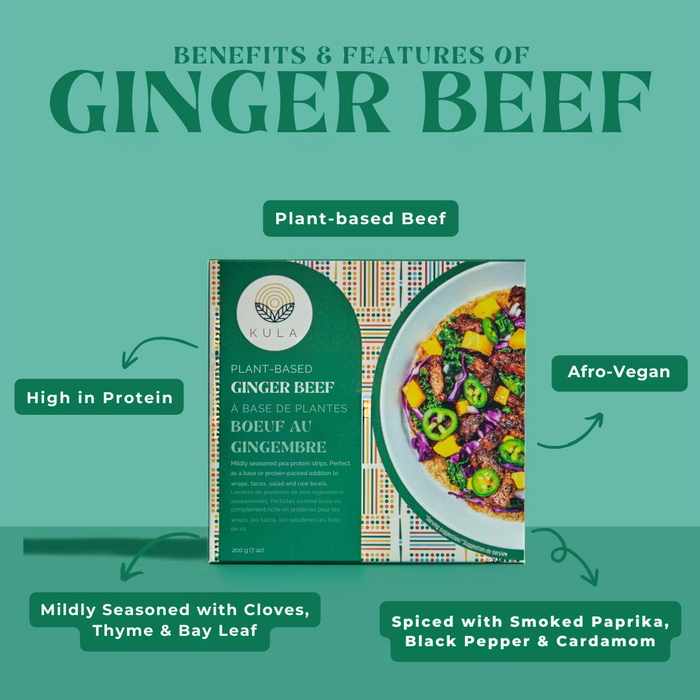7 Flavor-Packed BBQ Sauces That Are Perfect for Meatless Grilling
7 Flavor-Packed BBQ Sauces That Are Perfect for Meatless Grilling
Blog Article
All About Healthy And Balanced Food: Advantages of Enjoying Plant Based Choices
The discussion bordering plant-based diets has actually gained substantial interest in the last few years. Numerous people are discovering the potential health benefits, dietary benefits, and ecological impacts connected with these nutritional options. As people become much more conscious of their food's influence on health and sustainability, inquiries emerge concerning the practicalities of adopting such a lifestyle. What certain modifications can one anticipate, and how might these selections improve not just personal health but also the earth's future?
Comprehending Plant-Based Diets
Numerous individuals connect plant-based diet plans generally with vegetarianism or veganism, these diet plans can encompass a vast range of eating patterns that focus on entire, minimally refined plant foods. Such diets usually include fruits, vegetables, entire grains, nuts, seeds, and beans, while restricting or eliminating animal products. This flexibility permits individuals to tailor their nutritional options according to dietary demands and individual preferences. Some might adopt a mainly plant-based diet plan while still occasionally consuming meat or dairy, commonly described as a flexitarian strategy. The focus stays on including more plant foods, which can bring about a varied range of dishes and flavors. Comprehending these numerous interpretations of plant-based eating is vital for valuing its availability and charm in modern food society.
Health Perks of Plant-Based Foods
The wellness advantages of plant-based foods are considerable, offering a nutrient thickness benefit that sustains general wellness. Research study indicates that these foods can boost heart health and wellness and play an essential role in effective weight management. By including much more plant-based options, individuals may boost their dietary choices and promote long-lasting wellness.
Nutrient Density Advantage
Nutrient density plays a crucial function in the health benefits of plant-based foods, making them a compelling selection for those seeking a balanced diet plan. Plant-based foods, such as fruits, vegetables, beans, nuts, and entire grains, are frequently abundant in vital vitamins, minerals, and antioxidants while being reduced in calories. This high nutrient density permits individuals to eat less calories while still satisfying their dietary needs. Furthermore, these foods are loaded with nutritional fiber, advertising digestion wellness and helping in weight administration. By integrating nutrient-dense plant-based alternatives, consumers can enhance their total health, support their body immune systems, and lower the risk of chronic diseases. Inevitably, the nutrient density of plant-based foods emphasizes their value in a health-conscious way of life.
Heart Health Enhancement

Weight Administration Assistance
Along with promoting heart health and wellness, a plant-based diet can substantially help in weight management. This dietary method emphasizes entire foods such as fruits, vegetables, legumes, nuts, and whole grains, which are typically reduced in calories and higher in fiber compared to animal-based products. The high fiber content aids boost satiation, minimizing total calorie intake. Additionally, plant-based diet regimens are frequently rich in important nutrients while low in harmful fats, making it easier to preserve a healthy weight. Plant Based Chicken. Study indicates that people that embrace a plant-based lifestyle have a tendency to have reduced body mass indexes (BMIs) and experience more successful weight management contrasted to those who take in meat-heavy diet plans. Welcoming plant-based alternatives is a calculated option for reliable weight administration.
Nutritional Worth of Plant-Based Active Ingredients
Plant-based ingredients are rich in important nutrients, supplying a diverse variety of vitamins, minerals, and anti-oxidants that contribute to total wellness. A contrast of healthy protein sources exposes that while pet products are frequently considered as premium, lots of plant-based alternatives offer adequate healthy protein and various other useful compounds. Comprehending the nutritional value of these components can help individuals make educated dietary selections.
Essential Nutrients in Plants
Nutrient-rich active ingredients discovered in plants use a varied variety of vital vitamins and minerals that add greatly to overall health. These active ingredients are rich in vitamins A, C, and K, which support my blog immune feature, vision, and blood clot, respectively. In enhancement, plants offer crucial minerals such as magnesium, potassium, and calcium, crucial for heart health, muscle mass feature, and bone toughness. The visibility of fiber in plant-based foods help digestion and promotes a healthy gut microbiome. Antioxidants, located perfectly in fruits and vegetables, aid combat oxidative stress and anxiety and minimize swelling. Furthermore, lots of plant foods are low in calories yet high in nutrients, making them a superb selection for those looking for to maintain a healthy weight while ensuring optimal nutrient intake.
Contrasting Protein Resources
Healthy protein resources differ considerably in their dietary profiles, with plant-based active ingredients using unique advantages. Unlike animal healthy proteins, which typically contain hydrogenated fats and cholesterol, plant healthy proteins often tend to be lower in these unhealthy components. Legumes, nuts, seeds, and whole grains are rich in essential amino acids, fiber, vitamins, and minerals. For example, lentils provide high protein content along with substantial iron and folate, while quinoa is a total protein, using all nine vital amino acids. Additionally, plant-based healthy proteins are typically accompanied by anti-oxidants and phytochemicals that sustain total wellness. The change to plant-based protein important source resources not just boosts nutritional consumption yet additionally lines up with lasting dietary techniques, reducing environmental effect and advertising long-lasting wellness advantages.
Environmental Impact of Plant-Based Eating
As understanding of environment change grows, lots of people are discovering sustainable dietary selections that can substantially reduce their environmental footprint. Plant-based eating has arised as a significant factor to lowering greenhouse gas exhausts, which are mostly connected with animals manufacturing. The cultivation of fruits, grains, veggies, and beans typically needs fewer resources, such as water and land, compared to animal farming. In addition, plant-based diet regimens can cause decreased deforestation, as less land is required for grazing animals or expanding pet feed. By changing in the direction of plant-based alternatives, consumers can support biodiversity and advertise much healthier communities. In general, accepting plant-based eating not just benefits personal health but also represents an essential action towards environmental sustainability and preservation initiatives.
Conquering Common Misconceptions
While lots of individuals recognize the benefits of a plant-based diet, several misconceptions often hinder them from fully welcoming this lifestyle. A common idea is that plant-based diet plans do not have sufficient protein; nevertheless, many plant sources, such as legumes, nuts, and tofu, provide sufficient healthy protein. In addition, some think that this diet is pricey, when in fact, staples like beans, rice, and seasonal vegetables can be fairly affordable. Another mistaken belief is that plant-based consuming is overly restrictive, whereas it in fact supplies a varied range of flavors and foods. Several stress that a plant-based diet may lead to deficiencies, yet with correct planning, people can get all required nutrients, including minerals and vitamins, while taking pleasure in a vast range of delicious dishes.
Tips for Transitioning to a Plant-Based Lifestyle
Making the shift to a plant-based way of living can be an improving experience, though it frequently calls for some advice to browse the initial changes. Individuals are encouraged to begin slowly, integrating even more fruits, vegetables, legumes, and entire grains into their meals while decreasing meat and dairy intake. Meal preparation is vital; preparing an once a week food selection can assist relieve the adjustment and stop last-minute undesirable selections. Checking out brand-new recipes and cooking approaches can also preserve and enhance the experience exhilaration about plant-based eating. Additionally, joining support groups or communities can offer inspiration and share useful ideas. Finally, remaining informed concerning nourishment assurances well balanced meals, protecting against deficiencies while cultivating a healthy and balanced, rewarding plant-based way of life.
Delicious Plant-Based Dish Ideas
Discovering tasty plant-based meal ideas can motivate people to accept a more nourishing diet plan. One prominent alternative is a passionate quinoa salad, featuring cherry tomatoes, cucumber, and a vibrant lemon-tahini dressing. One more favorite is a tasty lentil stew, loaded with carrots, celery, and aromatic natural herbs, perfect for a comforting dinner. For morning meal, overnight oats made with almond milk, chia seeds, and topped with fresh berries give a healthy begin to the day. In addition, a vibrant vegetable stir-fry with tofu and a selection of vibrant veggies can be a quick yet pleasing dish. Finally, velvety avocado salute on whole-grain bread, sprayed with seeds and spices, uses a simple yet flavorful treat. These dishes display the variety and splendor of plant-based consuming.

Often Asked Inquiries
Can a Plant-Based Diet Supply Enough Healthy Protein?
The concern of whether a plant-based diet regimen can give enough protein is common. Countless sources, including beans, nuts, seeds, and entire grains, can meet protein needs efficiently, supporting a nutritious and well balanced diet for people.
Are Plant-Based Diets Suitable for Kid?
The viability of plant-based diet plans for youngsters depends on cautious preparation. Adequate nutrients have to be ensured, including link minerals, vitamins, and proteins. With proper advice, such diet regimens can support healthy growth and growth in youngsters.
Just how Do I Eat in restaurants on a Plant-Based Diet regimen?
Eating in restaurants on a plant-based diet regimen involves looking for dining establishments with diverse menus, asking for adjustments, and discovering vegan-friendly choices. Planning ahead and interacting dietary preferences can boost the eating experience while preserving dietary selections.
What Are Typical Irritants in Plant-Based Foods?
Typical irritants in plant-based foods include soy, gluten, nuts, and seeds - Plant Based Beef. People adhering to a plant-based diet regimen should be aware of these irritants and check out labels thoroughly to avoid unfavorable responses and ensure risk-free usage
Can Plant-Based Diets Assist With Weight Reduction?
Research shows that taking on a plant-based diet plan may help with weight reduction because of its generally lower calorie density and greater fiber web content. This combination can improve satiety, helping individuals manage their calorie intake effectively. Several individuals connect plant-based diets primarily with vegetarianism or veganism, these diet regimens can encompass a wide array of eating patterns that prioritize entire, minimally refined plant foods. Nutrient thickness plays a crucial function in the wellness benefits of plant-based foods, making them a compelling selection for those looking for a well balanced diet. Plant-based diet regimens have actually been shown to noticeably improve heart health, as they often contain elements that support cardiovascular feature. In addition to promoting heart wellness, a plant-based diet regimen can considerably assist in weight management. A typical belief is that plant-based diet regimens lack sufficient healthy protein; however, numerous plant resources, such as vegetables, nuts, and tofu, provide enough healthy protein.
Report this page